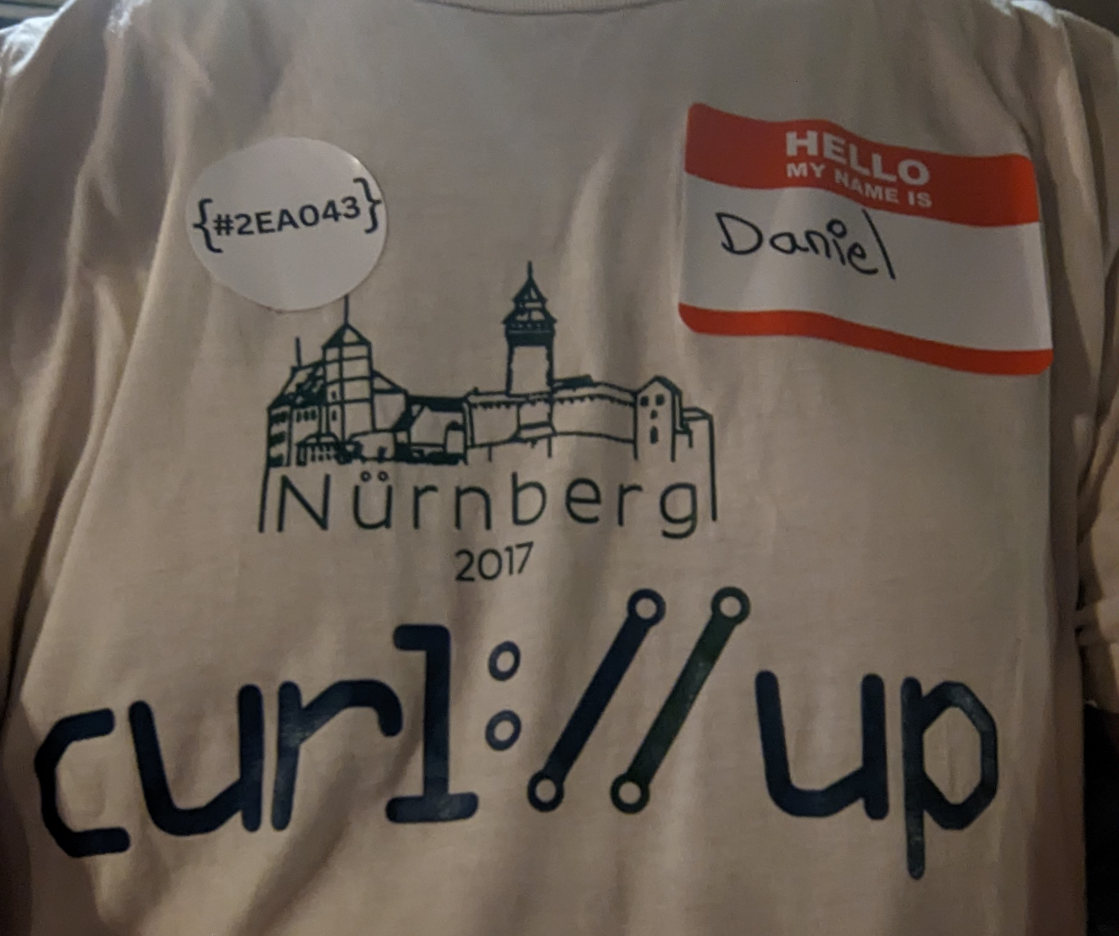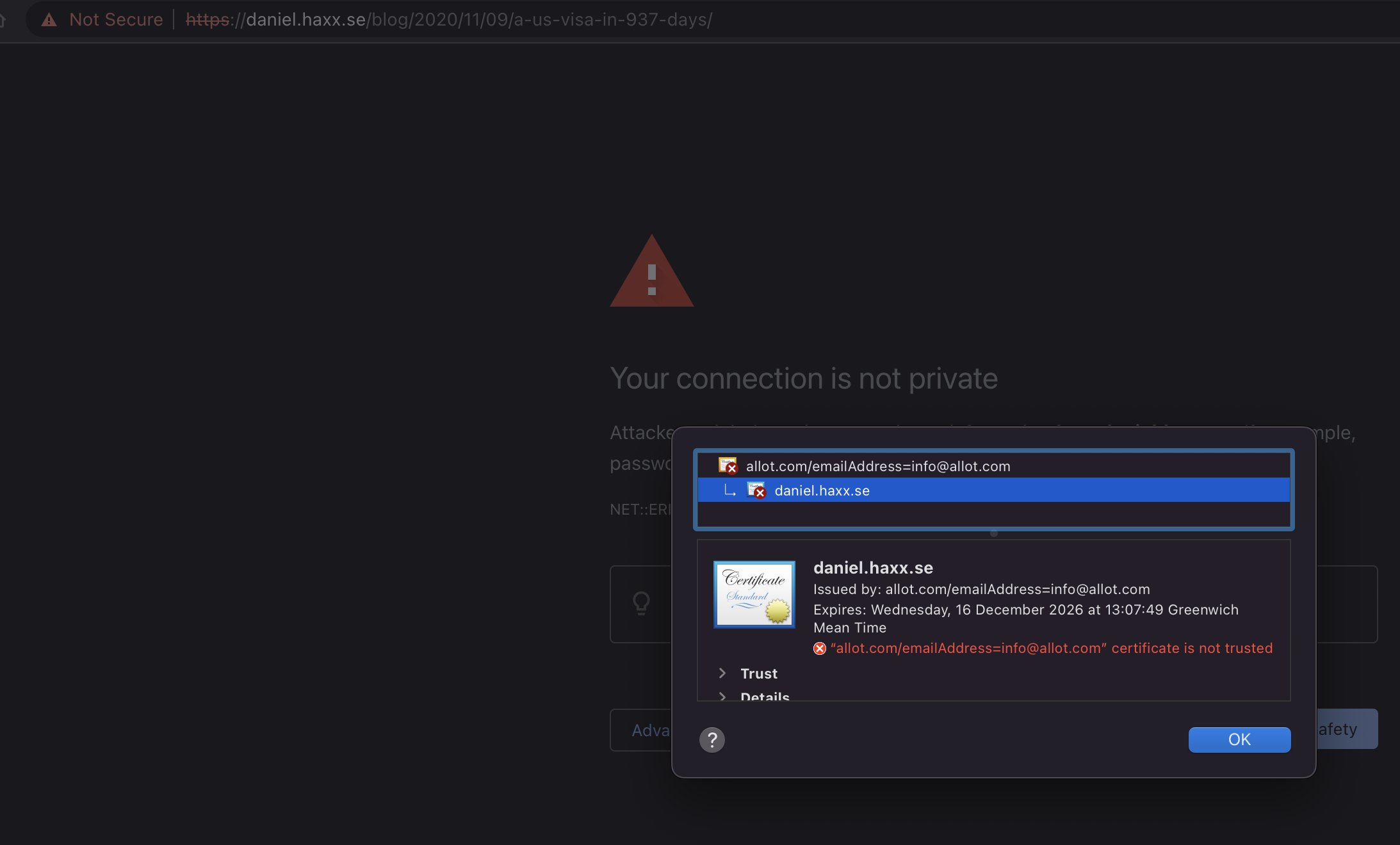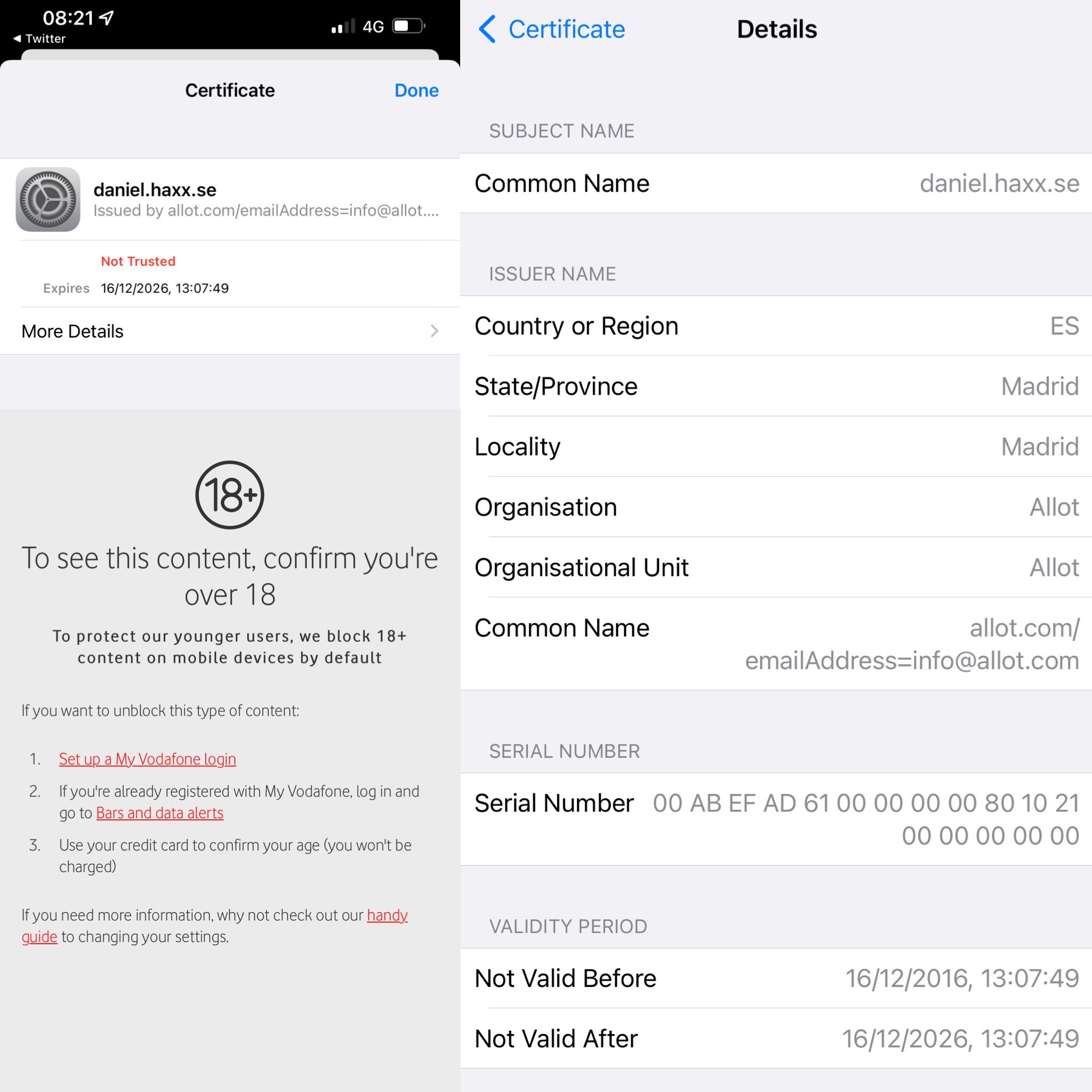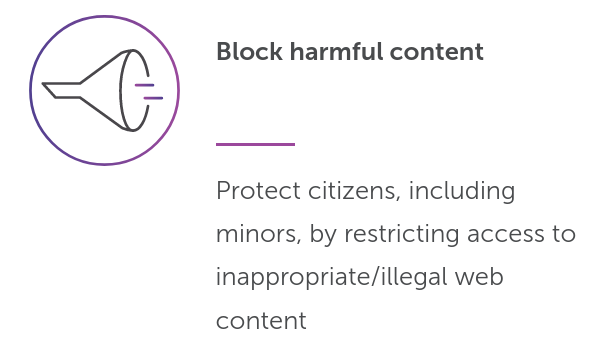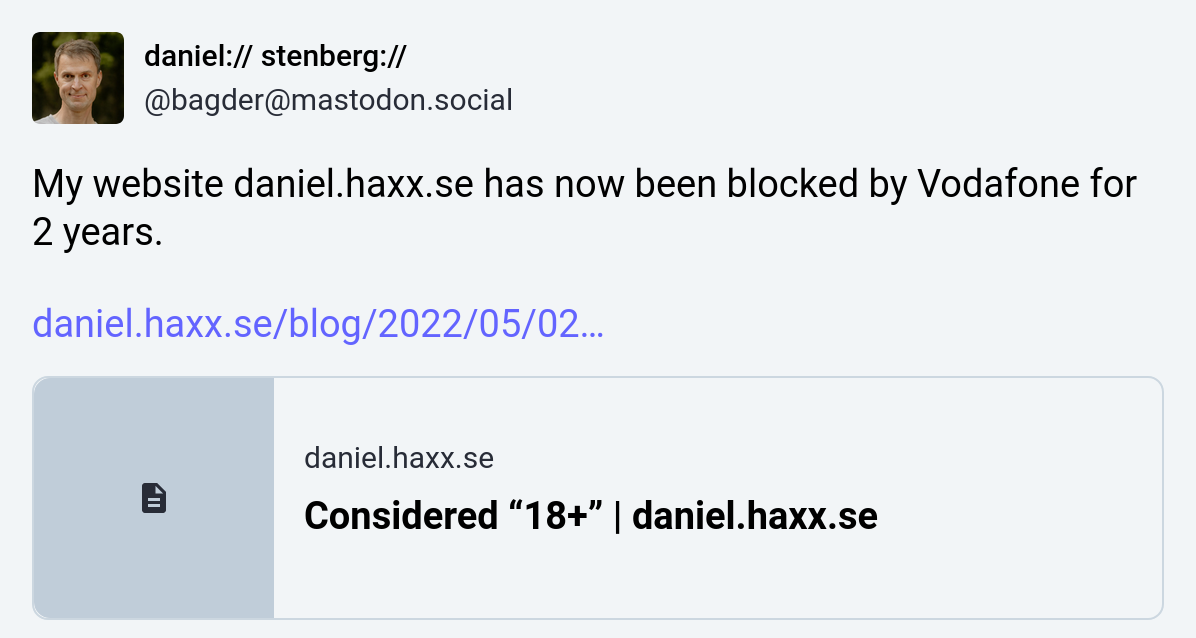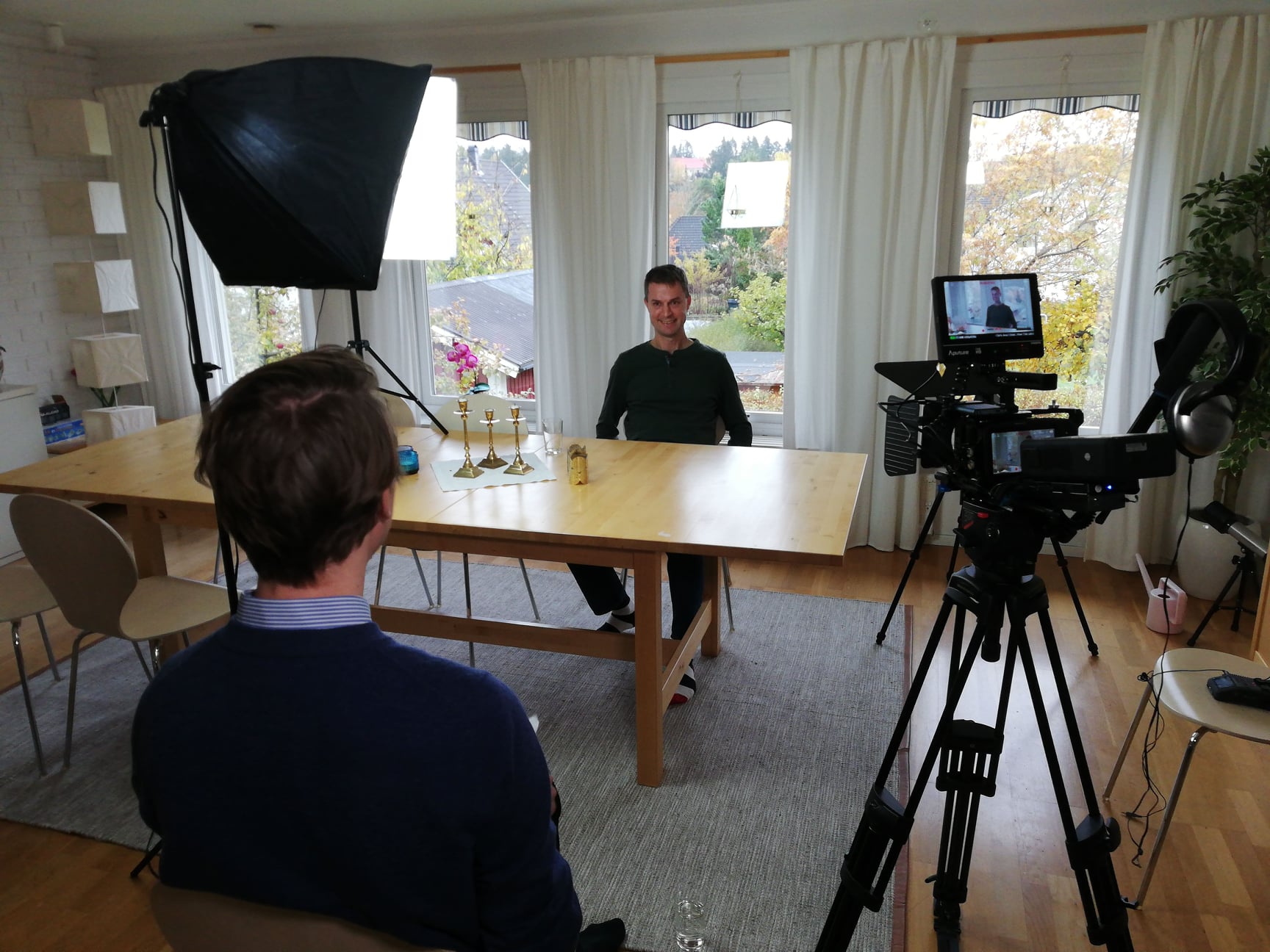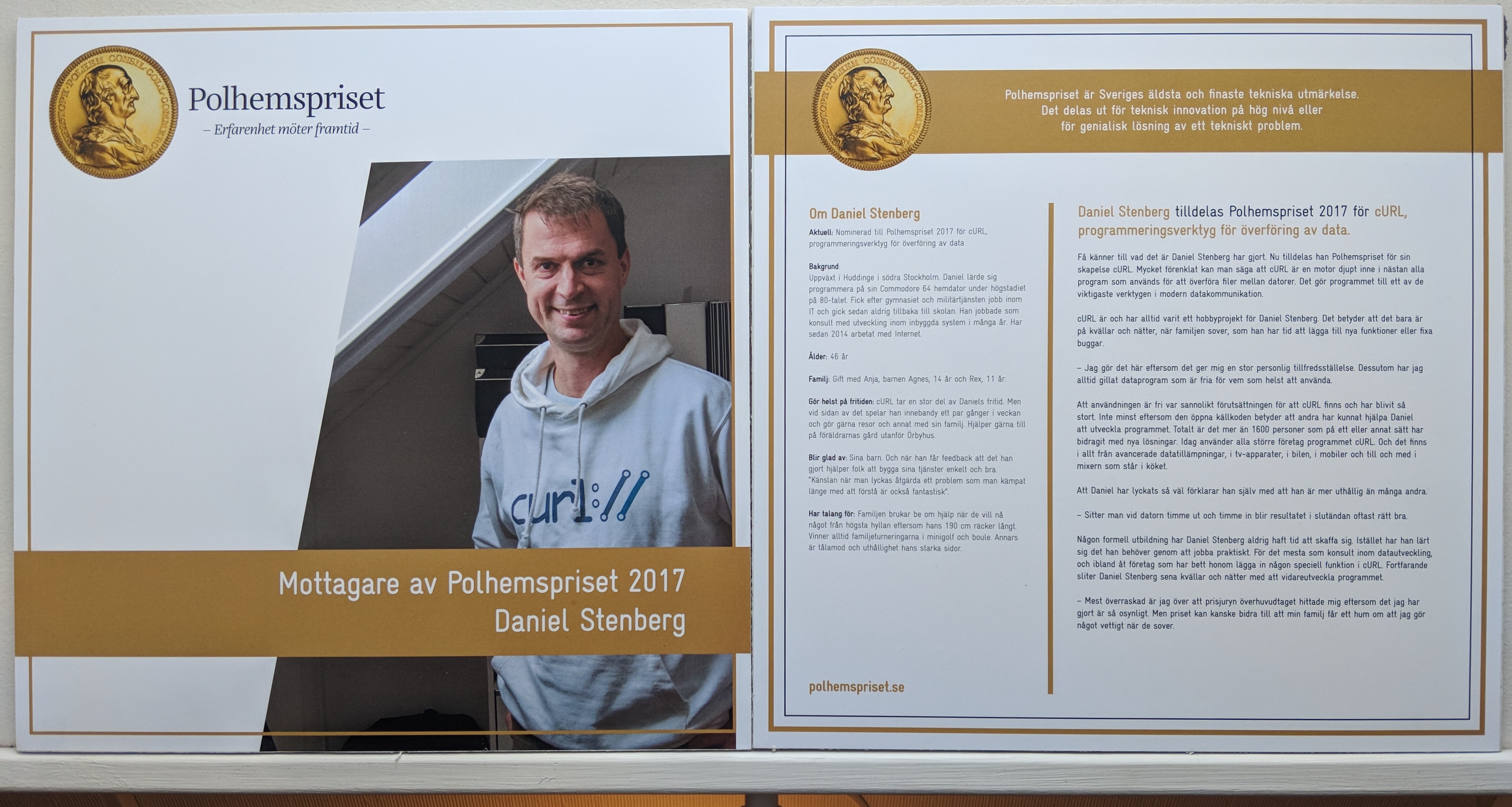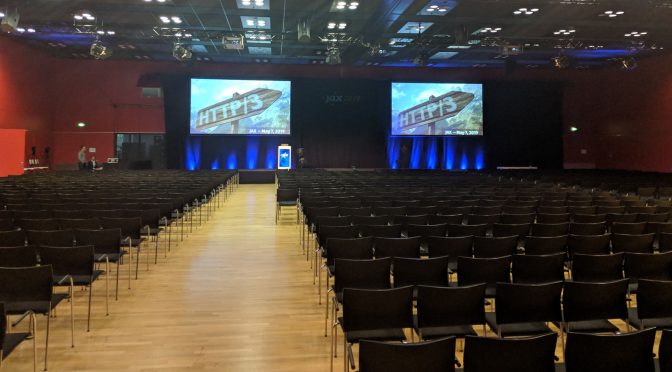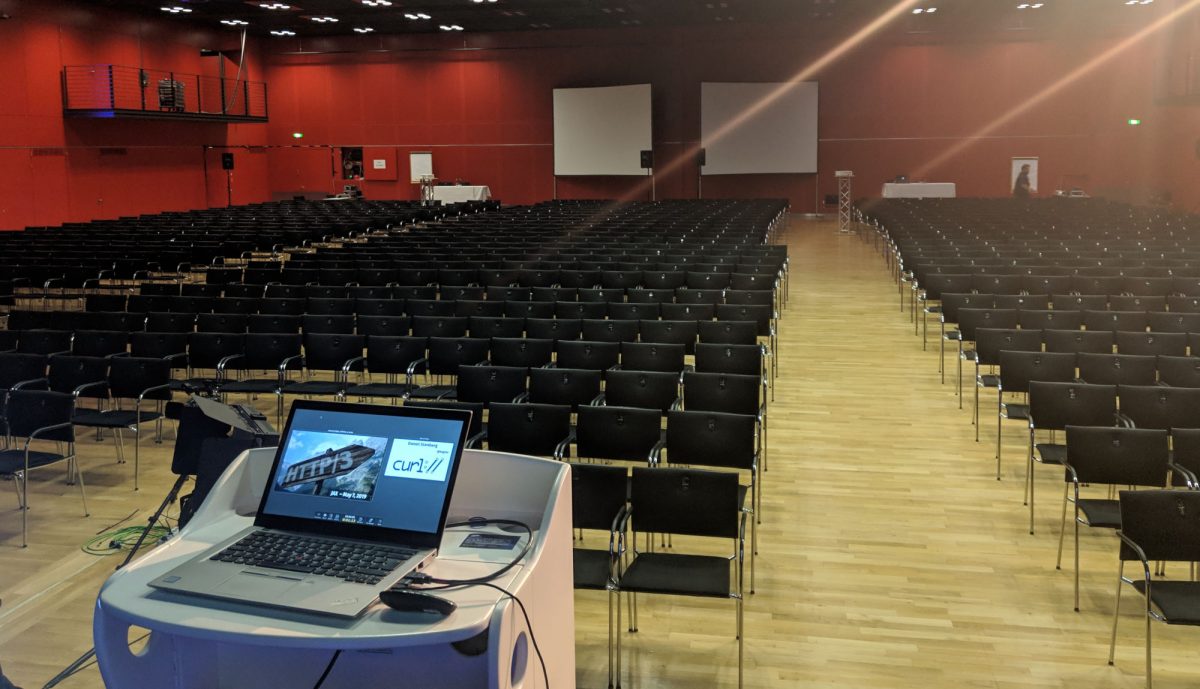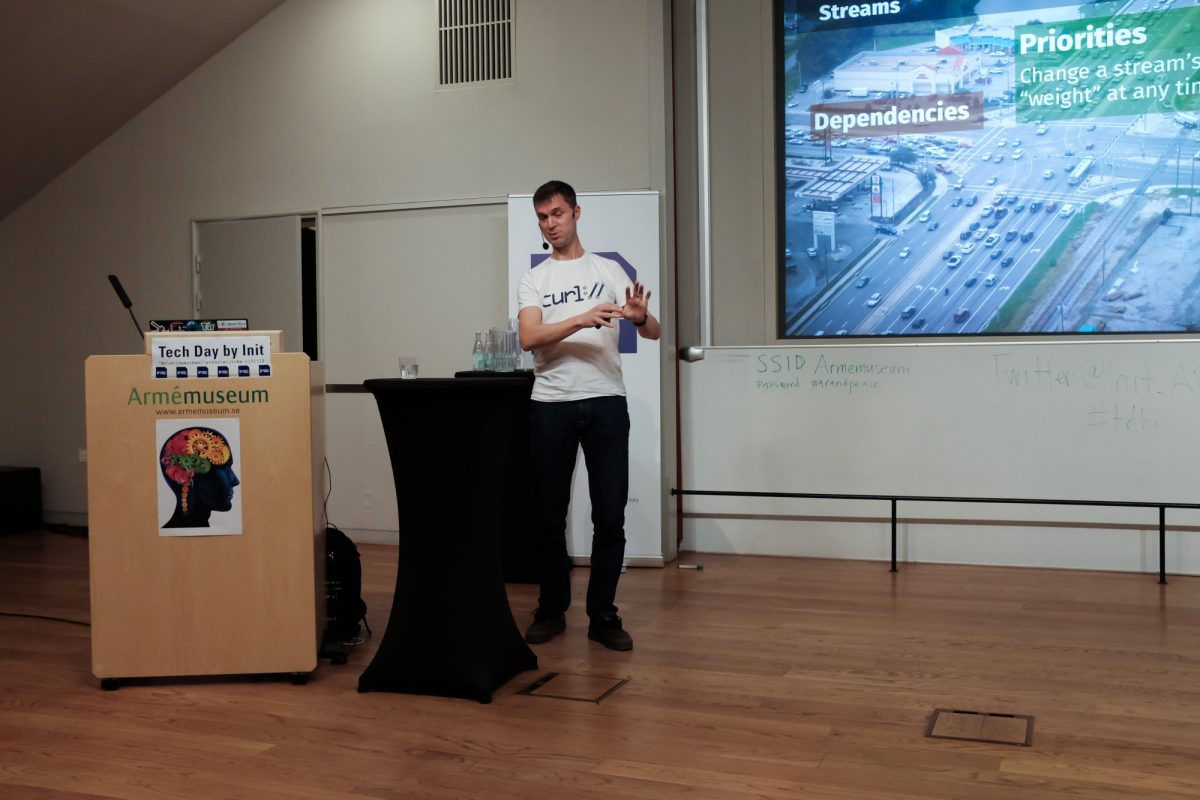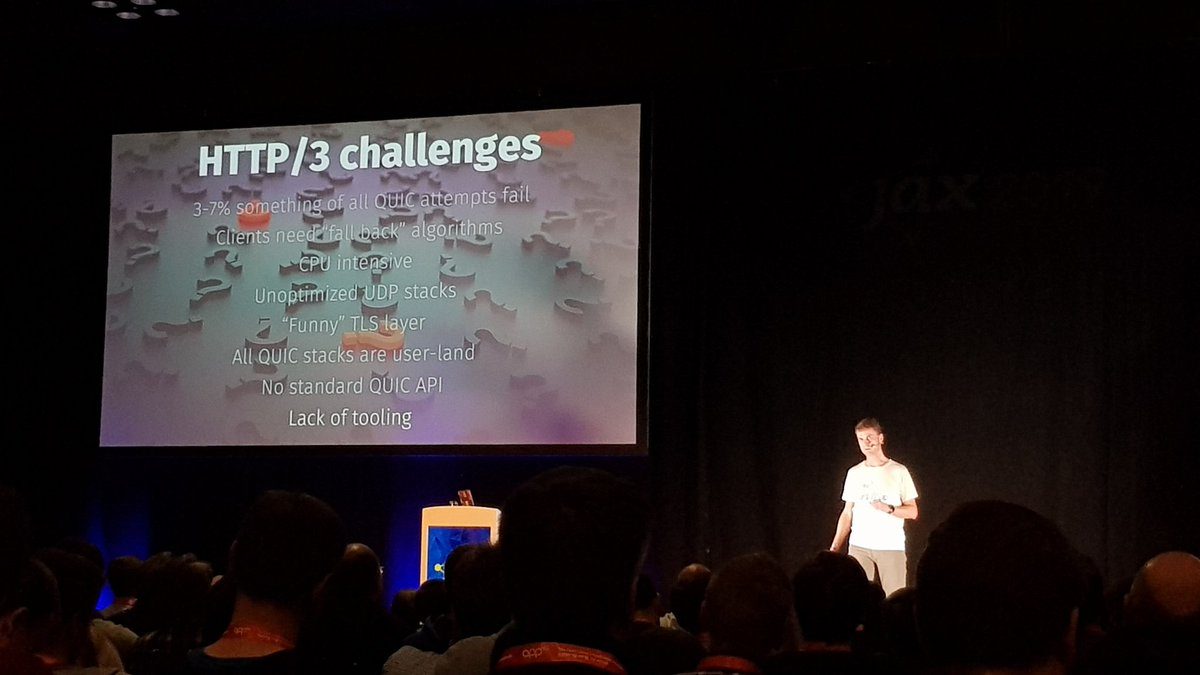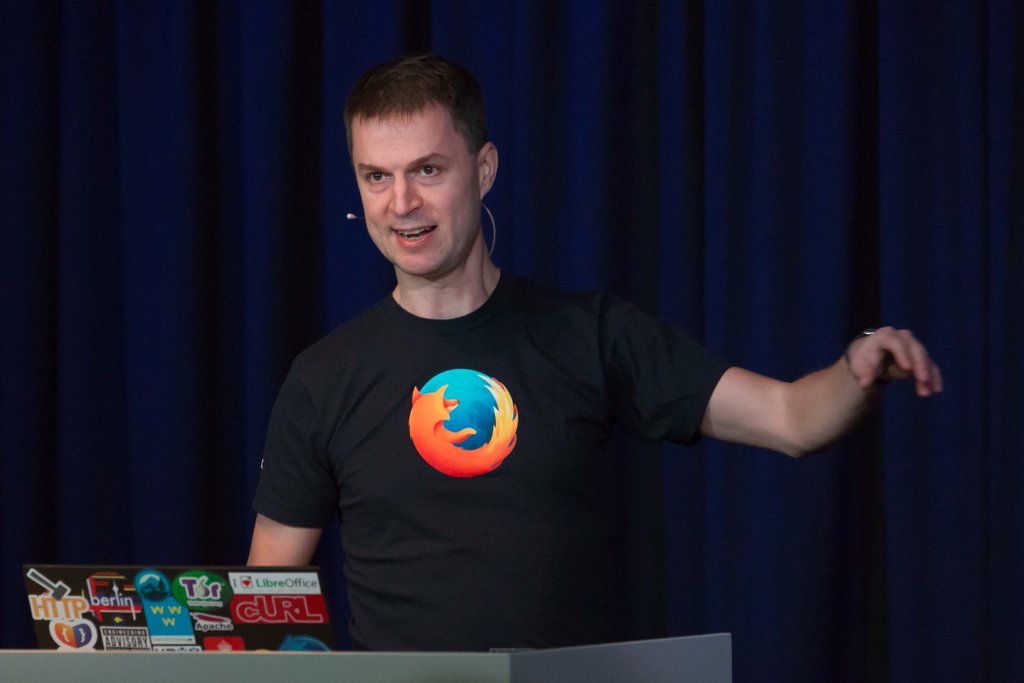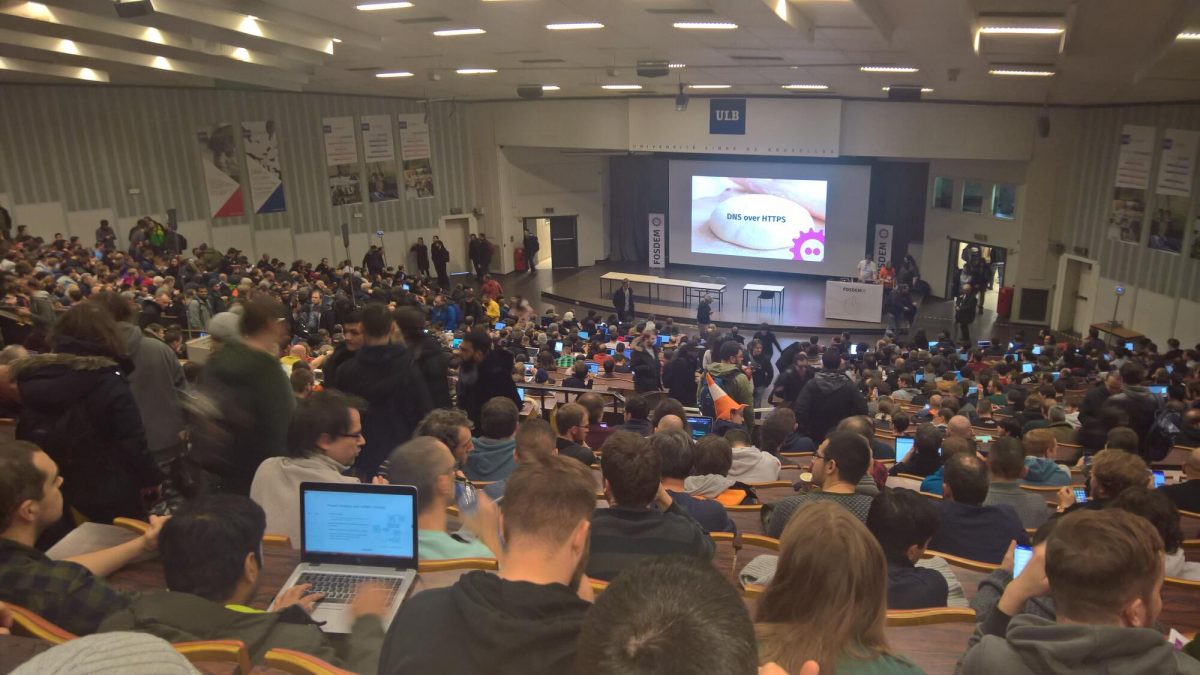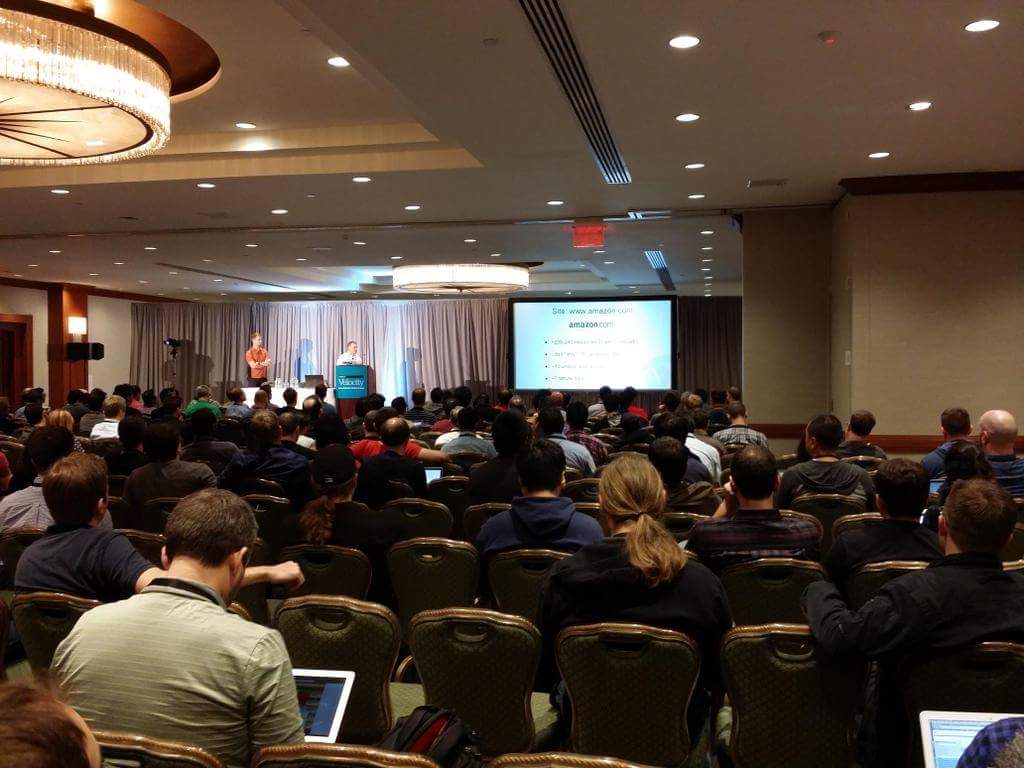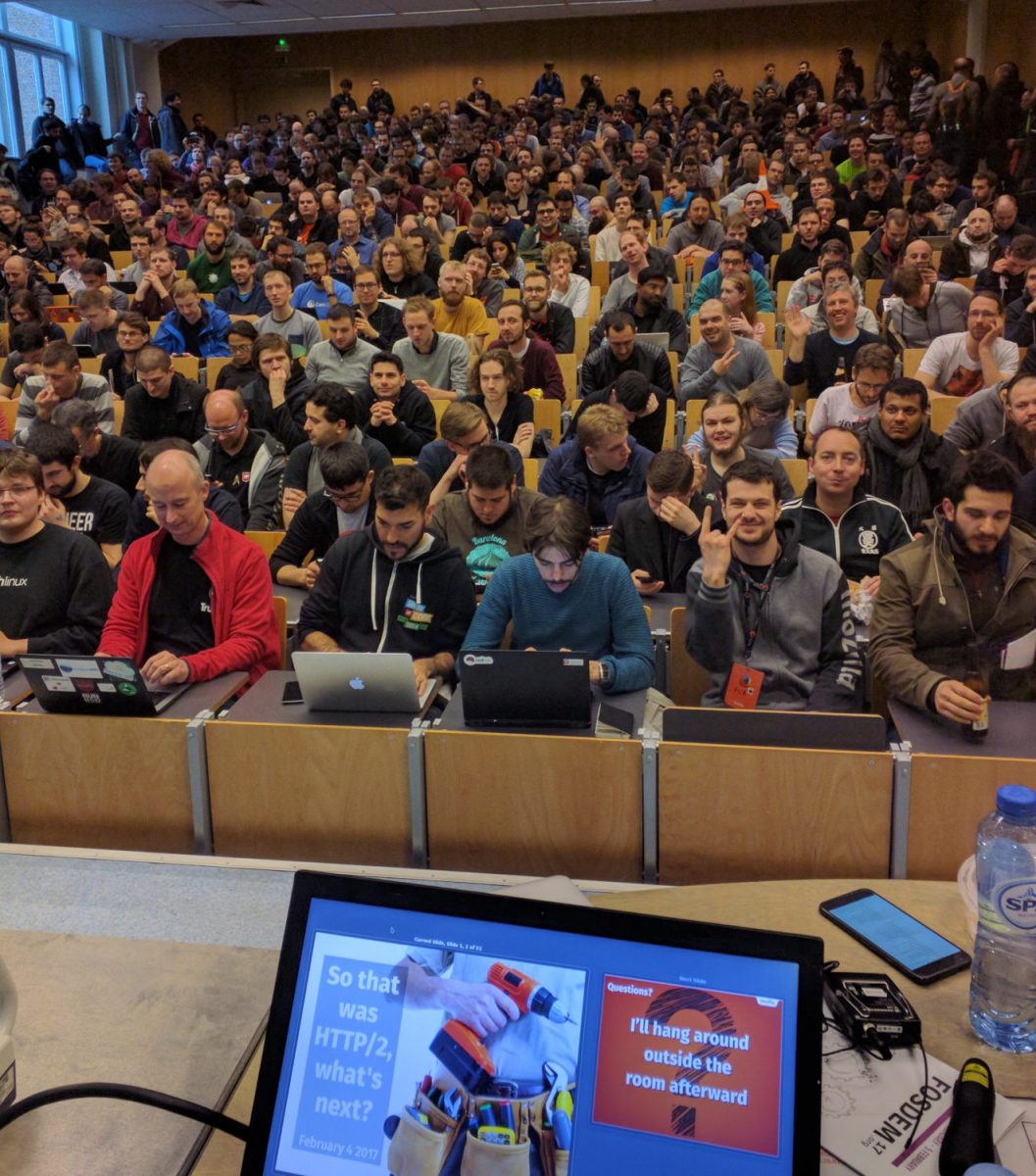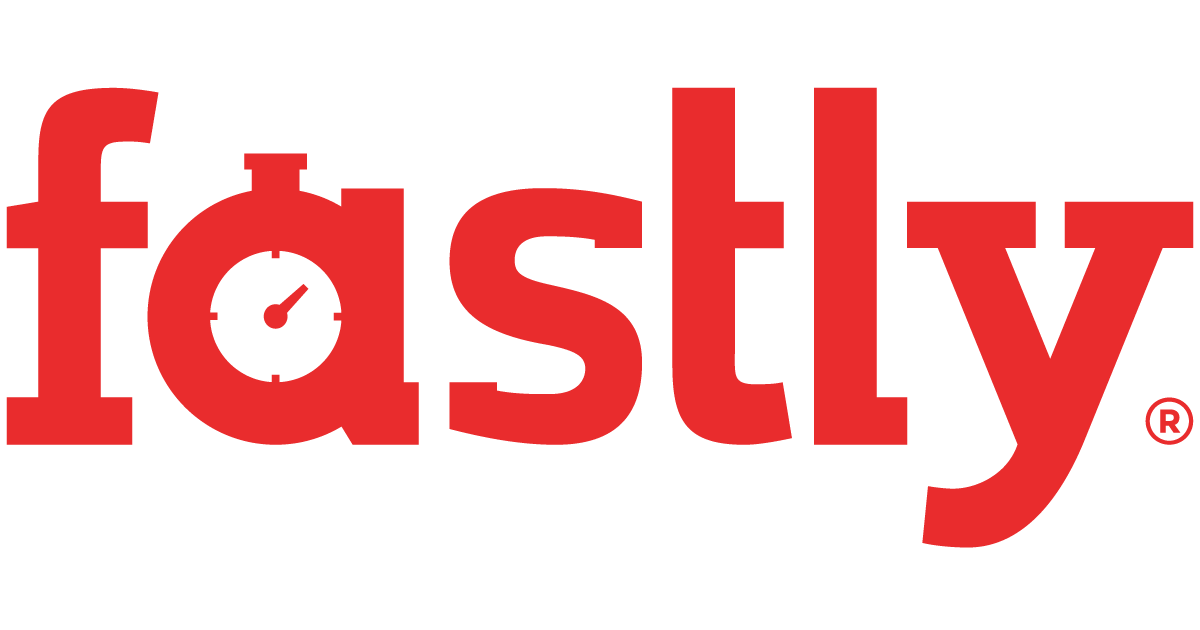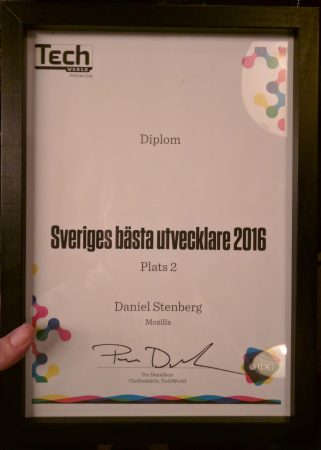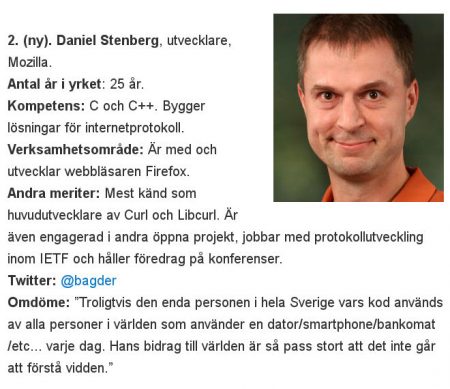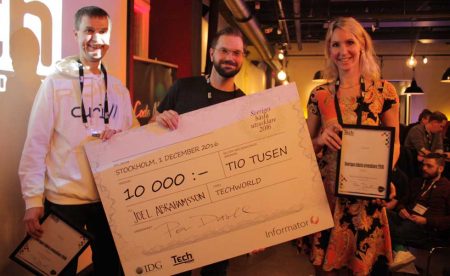At FOSDEM 2023, fossasia sold a fun badge with bright red 44×11 leds on them. Looking like this:
Lots of people walked around the conference this year with sarcastic or otherwise amusing messages scrolling or blinking on them.
GitHub Social
When a few people at the GitHub Social event on the Saturday evening showed up wearing those badges, this triggered Martin Woodward (VP of DevRel for GitHub) who hosted the event, and he brought out his e-ink programmable badge from GitHub Universe and with a big smile on his face he showed off how cool it was and some of the functionality it holds. Combined with the story behind how he made this happen. Good stuff!
The red led badge immediately felt boring in comparison and in particular my friend Linus expressed his desire to get one. Martin explained how they had a few of them as prizes for the lottery of the evening. You would get one chance to win for every “hash collision” you could find – we all had gotten a hash code each on a sticker when we entered the place. Linus took off and searched for collisions with a frenzy, trying to maximize his chances.
Hash collisions
It was a fun and sufficiently nerdy social game that made us talk and mingle around a bit among the other fellow open source maintainers in the room and soon enough we found occasional collisions. I think I ended up finding three, Linus found six. Every time we wrote our names on a piece of paper and put it in a big container.
Socializing, beers, pizza and then eventually the time had come. No more collisions, time to see who had won.
Prizes
GitHub handed out many different prizes apart from the badges: GitHub pro subscriptions, hats and a huge GitHub Led logo.
I got the honors of picking the first five prizes: the pro subscriptions. Out of the five folded papers one of them had my name on it! Me already being a GitHub star (which offers that, and Martin knowing this), my name was instead replaced by another ticket. Still, I had apparently managed to pull my own name out of the hundreds of lottery tickets!
The badges
When the time come to pick the winners for the five badges, someone else fished up five tickets from the box and they were handed over to Martin to who read them, one by one.
Daniel Stenberg – I had won again! What are the odds? It was most hilarious, but then Martin continued, he read another name and then when he unfolded a ticket he looked a little surprised and said a little wondering another Stenberg? Yes, my brother Björn who was also present there then also won of those fun badges. What were the odds of that?!
Linus did not win one.
Linus, Björn and me are friends since over thirty years back (we are haxx.se) and since now two of us had won badges and the person who wanted it the most did not win, we of course could not resist to tease and taunt Linus plenty about it. What are friends for after all?
Leveling up
I knew how much Linus wanted one of these, so while I considered giving him mine, I first did a careful check with Martin. Did he possibly have an extra spare one that I could perhaps get my hands on for Linus?
He probably did. Over at his hotel he might have an extra. He even very graciously offered me that one like the champ he is.
Knowing that this possibility was in the pipeline, we could level up the taunting even more and really rub it in on Linus. Me and Björn thought it was mightily fun. You can probably say we were badgering him.
A midnight image
The GitHub event ended, we all walked out into the Brussels night, aiming to get some sleep to endure another intense FOSDEM full day the following Sunday. At 00:55 Martin messaged me this picture:
Sunday morning
Of course we reminded Linus already at breakfast how some of us actually have these cool badges and then maybe a few more times the following hours. We also shared the secret with other friends so the surrounding had a better understanding of what was going on.
In the meantime, I secretly coordinated a badge drop-off. My personal hero Martin delivered a box for Linus with this badge, I could pick it up and while pausing our badge-teasing, I could hand over the cardboard box to him with his GitHub handle on a sticker.
Here’s one for you
That expression. It took a few seconds for what just happened to sink in, before Linus realized exactly what had been going on since last night.
Priceless.
An e-ink programmable badge
The badge tech itself is a 296 x 128 pixels e-ink display powered by an FP2040 (Raspberry Pi) Dual Arm Cortex M0+ running at up to 133Mhz. Easily programmable too.
If you want one, pimoroni sells these beauties. (I have no relation with them.)
They call this the badger 2040, which is particularly fun since I use the nickname bagder since a long time, on GitHub and elsewhere. A badger badge for bagder.
Click the images for higher resolution.



